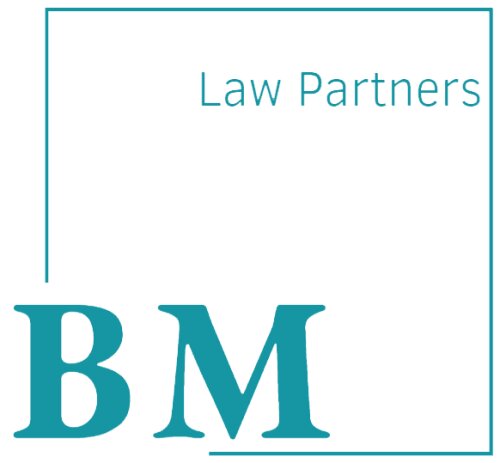Best Faith-Based Law Lawyers in Milan
Share your needs with us, get contacted by law firms.
Free. Takes 2 min.
List of the best lawyers in Milan, Italy
About Faith-Based Law in Milan, Italy
Faith-Based Law in Milan, Italy, refers to legal decisions and considerations that take into account religious principles and practices. This area of law often involves intersections between civil law and religious norms, which can be significant in areas such as marriage, divorce, inheritance, and religious freedoms. Milan, being a diverse and historically rich city, offers various contexts where Faith-Based Law may be applicable. The convergence of multiple faith traditions in Milan makes it essential to address legal matters with sensitivity towards different belief systems.
Why You May Need a Lawyer
There are several situations where individuals may seek legal advice specific to Faith-Based Law:
- Matters of marriage and divorce that involve religious customs or require validation from religious authorities.
- Inheritance disputes where religious laws might influence the distribution of assets.
- Employment issues concerning religious discrimination or the accommodation of religious practices.
- Educational challenges, such as the inclusion of religious education in schools or conflicts between civil educational requirements and religious beliefs.
- Immigration issues that may involve the consideration of religious persecution as grounds for asylum.
Local Laws Overview
Milan, and Italy in general, operates under a legal system that attempts to balance secular and religious considerations, particularly given the country's strong historical connections to the Catholic Church. Key aspects include:
- The Italian Constitution, which guarantees freedom of religion.
- Civil marriages are recognized by the state, but religious ceremonies may have civil effects if conducted by an authorized minister.
- Religious entities follow specific protocols to register with the state to be recognized legally.
- Employment laws protect against religious discrimination while seeking to accommodate reasonable religious practices.
- The Concordat with the Vatican, which addresses the relationship between the Catholic Church and the Italian state, affecting various legal matters concerning the Church's role in public life.
Frequently Asked Questions
What is Faith-Based Law?
Faith-Based Law refers to legal issues and frameworks that consider the religious beliefs and practices of individuals, typically resonating in personal matters like family law, religious rights, and educational choices.
Is Faith-Based Law recognized in Milan?
Yes, while Milan operates primarily under the Italian secular legal system, Faith-Based Law comes into play in contexts where religious rights and practices need to be reconciled with civil regulations.
Do religious marriages have legal standing in Milan?
Religious marriages can have legal standing if they comply with Italian civil laws; typically, the couple must also register the marriage in the civil registry.
Are there any specific legal protections for religious practices in the workplace?
Yes, Italian law protects against discrimination based on religion and attempts to accommodate religious practices in the workplace, within reason.
Can children receive religious education in public schools?
Public schools offer religious education, primarily Catholic by tradition, but parents can opt out their children from such classes.
How are religious disputes typically resolved in Milan?
Disputes may be resolved through mediation involving religious leaders, or through the secular court system if legal interpretation is necessary.
What role does the Catholic Church play in legal matters in Milan?
While the Catholic Church has significant cultural influence, legal matters are secular. However, the Church's opinions can impact social attitudes.
How is religious discrimination handled legally?
Italian law prohibits discrimination based on religion in employment, housing, and education, with avenues available for legal recourse if it occurs.
Does Italy recognize religious holidays legally?
Several religious holidays, particularly Catholic ones, are recognized and incorporated into Italy's public holiday calendar.
What should I consider when looking for a lawyer in Faith-Based Law?
Seek a lawyer with experience in both civil and religious legal matters and a deep understanding of the specific faith involved in your legal issue.
Additional Resources
For further assistance, consider reaching out to the following resources:
- Local diocesan offices for guidance on Catholic-related issues.
- The Italian Association of Islamic Jurisprudence for Islamic law matters.
- Local branches of Caritas, which provide mediation and legal assistance.
- Nigerian Muslim Association, offering legal counsel in faith-based contexts.
- Municipal legal aid offices that can provide initial consultations.
Next Steps
If you require legal assistance in Faith-Based Law, consider the following steps:
- Identify your specific legal needs and determine if they involve religious considerations.
- Research and contact lawyers who specialize in Faith-Based Law or have a strong background in both civil and religious legal issues.
- Prepare relevant documents and clearly state your legal issue when seeking consultations.
- Consider mediation or alternative dispute resolutions if advised, particularly for personal or family situations.
- Stay informed about both civil and religious aspects of your legal issue to better understand potential outcomes and solutions.
Lawzana helps you find the best lawyers and law firms in Milan through a curated and pre-screened list of qualified legal professionals. Our platform offers rankings and detailed profiles of attorneys and law firms, allowing you to compare based on practice areas, including Faith-Based Law, experience, and client feedback.
Each profile includes a description of the firm's areas of practice, client reviews, team members and partners, year of establishment, spoken languages, office locations, contact information, social media presence, and any published articles or resources. Most firms on our platform speak English and are experienced in both local and international legal matters.
Get a quote from top-rated law firms in Milan, Italy — quickly, securely, and without unnecessary hassle.
Disclaimer:
The information provided on this page is for general informational purposes only and does not constitute legal advice. While we strive to ensure the accuracy and relevance of the content, legal information may change over time, and interpretations of the law can vary. You should always consult with a qualified legal professional for advice specific to your situation.
We disclaim all liability for actions taken or not taken based on the content of this page. If you believe any information is incorrect or outdated, please contact us, and we will review and update it where appropriate.
















